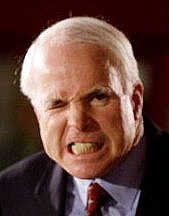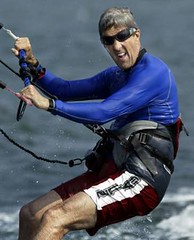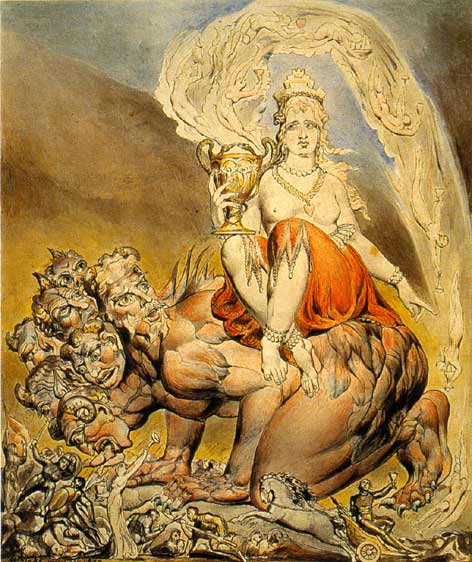By TIM WEINER
The New York Times
January 24, 2007
E. Howard Hunt, a cold warrior for the
Central Intelligence Agency who left the spy service in disillusionment, joined the Nixon White House as a secret agent and bungled the break-in at the
Watergate that brought the president down in disgrace, died Tuesday in Miami. He was 88.
His death, at North Shore Medical Center, was caused by pneumonia, said his wife, Laura.
“This fellow Hunt,” President
Richard M. Nixon muttered a few days after the June 1972 break-in, “he knows too damn much.”
That was Howard Hunt’s burden: he was entrusted with too many secret missions. His career at the C.I.A. was destroyed by the disastrous invasion of Cuba at the
Bay of Pigs in 1961, and his time as Nixon’s master of dirty tricks ended with his arrest in the Watergate case. He served 33 months in prison for burglary, conspiracy and wiretapping and emerged a broken man.
“I am crushed by the failure of my government to protect me and my family as in the past it has always done for its clandestine agents,” Mr. Hunt told the Senate committee investigating the Watergate affair in 1973, when he faced a provisional prison sentence of 35 years. “I cannot escape feeling that the country I have served for my entire life and which directed me to carry out the Watergate entry is punishing me for doing the very things it trained and directed me to do.”
He was a high-spirited 30-year-old novelist who aspired to wealth and power when he joined the C.I.A. in 1949. He set out to live the life he had imagined for himself, a glamorous career as a spy. But Mr. Hunt was never much of a spy. He did not conduct classic espionage operations in order to gather information. His field was political warfare:
dirty tricks,
sabotage and
propaganda.
When he left the C.I.A. in 1970 after a decidedly checkered career, he had become a world-weary cynic. Trading on the thin veneer of a reputation in the clandestine service, he won a job as a $100-a-day “security consultant” at the Nixon White House in 1971.
In that role, he conducted break-ins and burglaries in the name of national security. He drew no distinction between orchestrating a black-bag job at a foreign embassy in Mexico City and wiretapping the Democratic National Committee’s headquarters at the Watergate complex. He recognized no lawful limit on presidential power, convinced that “when the president does it,” as Nixon once said, “that means it is not illegal.” Mr. Hunt and the nation found out otherwise.
Mr. Hunt was intelligent, erudite, suave and loyal to his friends. But the record shows that he mishandled many of the tasks he received from the C.I.A. and the White House. He was “totally self-absorbed, totally amoral and a danger to himself and anybody around him,” Samuel F. Hart, a retired United States ambassador who first met him in Uruguay in the 1950s, said in a State Department oral history.
“As far as I could tell, Howard went from one disaster to another,” Mr. Hart said, “until he hit Watergate.”
Everette Howard Hunt Jr. was born in Hamburg, N.Y., on Oct. 9, 1918, the son of a lawyer and a classically trained pianist who played church organ. He graduated from Brown University in June 1940 and entered the United States Naval Academy as a midshipman in February 1941.
He worked as a wartime intelligence officer in China, a postwar spokesman for the
Marshall Plan in Paris and a screenwriter in Hollywood. Warner Brothers had just bought his fourth novel, “Bimini Run,” a thriller set in the Caribbean, when he joined the fledgling C.I.A. in April 1949.
Mr. Hunt was immediately assigned to train C.I.A. recruits in political and
psychological warfare, fields in which he was a rank amateur, like most of his colleagues. He moved to Mexico City, where he became chief of station in 1950. He brought along another rookie C.I.A. officer,
William F. Buckley Jr., later a prominent conservative author and publisher, who became godfather and guardian to the four children of Mr. Hunt and his wife, the former Dorothy L. Wetzel.
In 1954, Mr. Hunt helped plan the covert operation that overthrew the elected president of Guatemala,
Jacobo Arbenz. “What we wanted to do was to have a terror campaign,” Mr. Hunt said in a CNN documentary on the cold war, “to terrify Arbenz particularly, to terrify his troops.” Though the operation succeeded, it ushered in 40 years of military repression in Guatemala.
By the time of the coup, Mr. Hunt had been removed from responsibility. He moved on to uneventful stints in Japan and Uruguay. Not until 1960 was Mr. Hunt involved in an operation that changed history.
The C.I.A. had received orders from both
President Dwight D. Eisenhower and his successor,
President John F. Kennedy, to alter or abolish the revolutionary government of
Fidel Castro in Cuba. Mr. Hunt’s assignment was to create a provisional Cuban government that would be ready to take power once the C.I.A.’s cadre of Cuban shock troops invaded the island. He fared no better than the paramilitary planners who had vowed to defeat Mr. Castro’s 60,000-man army with a 1,500-strong brigade.
The careers of the American intelligence officers who planned and executed the Bay of Pigs debacle in April 1961 were damaged or destroyed, as was the C.I.A.’s reputation for derring-do. Mr. Hunt spent most of the 1960s carrying out desultory propaganda tasks at the agency, among them running news services and subsidizing books that fell stillborn from the press.
He funneled his talent into writing paperback spy novels. His works followed a formula of sex and intrigue but offered flashes of insight. “We become lawless in a struggle for the rule of law — semi-outlaws who risk their lives to put down the savagery of others,” says the author’s alter ego, Peter Ward, in the novel “Hazardous Duty.”
He retired from the C.I.A. in 1970 and secured a job with an agency-connected public relations firm in Washington. Then, a year later, came a call from the White House. A fellow Brown alumnus,
Charles W. Colson, special counsel to President Nixon, hired Mr. Hunt to carry out acts of political warfare. Within weeks, Mr. Hunt was in charge of a subterranean department of dirty tricks.
He went back to C.I.A. headquarters, requesting false identification, a red wig, a voice-altering device and a tiny camera. He then burglarized the Beverly Hills office of a psychiatrist treating Dr.
Daniel J. Ellsberg, a former national-security aide who had leaked a copy of the Pentagon Papers, a classified history of the Vietnam War, to The New York Times. Mr. Hunt was looking for information to discredit Mr. Ellsberg. When the break-in became public knowledge two years later, the federal case against Mr. Ellsberg on charges of leaking classified information was dismissed.
Mr. Hunt, in league with another recently retired C.I.A. officer and four Cuban Bay of Pigs veterans, then led a break-in at the offices of the Democratic National Committee at the Watergate complex to bug the telephone lines. The job was botched, and the team went in again to remove the taps. The burglars were arrested on the night of June 17, 1972. One had Mr. Hunt’s name and a White House telephone number in his address book, a classic failure of espionage tradecraft that proved the first thread of the web that ensnarled the president.
The final blow that drove Nixon from office was one of the secret White House recordings he made — the “smoking gun” tape — in which he vowed to order the C.I.A. to shut down the federal investigation of the Watergate break-in on spurious national-security grounds. By the time Nixon resigned in August 1974, Mr. Hunt was a federal prisoner.
His life was in ruins: his wife had been killed in a plane crash in 1972, his legal fees approached $1 million, he had suffered a stroke, and whatever illusions he once had that his government would protect him were shattered. Standing before the judge who imprisoned him, he said he was “alone, nearly friendless, ridiculed, disgraced, destroyed as a man.”
Freed from prison just before his 60th birthday, Mr. Hunt moved to Miami, where he met and married his second wife, Laura, a schoolteacher, and started a second family. Besides his wife, he is survived by the two daughters and two sons from his first marriage: Lisa Hunt of Las Vegas, Kevan Hunt Spence of Pioneer, Calif., Howard St. John Hunt of Eureka, Calif., and David Hunt of Los Angeles; two children from his second marriage, Austin and Hollis, both of Miami; seven grandchildren; and three great-grandchildren.
Mr. Hunt’s last book, “American Spy: My Secret History in the C.I.A., Watergate and Beyond,” written with Greg Aunapu, is to be published on March 16 with a foreword by his old friend William F. Buckley Jr.
Late in life, he said he had no regrets, beyond the Bay of Pigs.
----
See also:
Wikipedia.com article on
Mark Lane who represented the right-wing group
Liberty Lobby as an attorney when the group was sued over an article in
The Spotlight newspaper implicating E. Howard Hunt in the assassination of President John F. Kennedy. Hunt sued for defamation and won a substantial settlement. Lane successfully got this judgement reversed on appeal. This became the basis for Lane's book
Plausible Denial. In the book, Lane claimed that he convinced the jury that Hunt was involved in the
JFK assassination.
The 1973 movie
Executive Action is largely based on Lane's writings concerning the Kennedy assassination.































